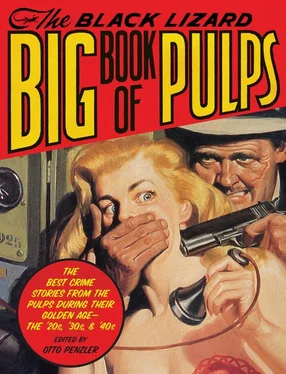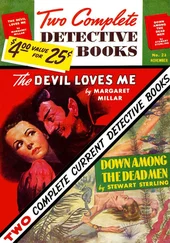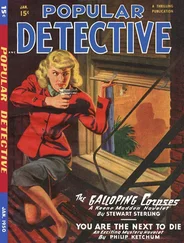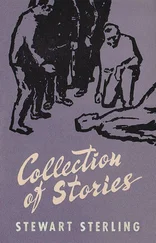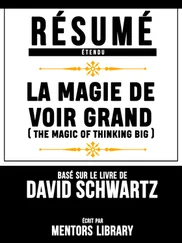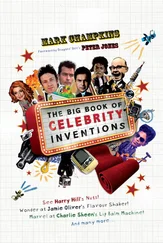That angle was empty. Any brown men who had snooped around the hotel had been too good at it to be caught.
I telephoned the Old Man, telling him what I had learned — which didn’t cost me much breath — and O’Gar and I spent the rest of the evening sharp-shooting around without ever getting on the target once. We questioned taxi-cab drivers, questioned the three Roundses listed in the telephone book, and our ignorance was as complete when we were through as when we started.
The morning papers, on the streets at a little after eight o’clock that evening, had the story as we knew it.
At eleven o’clock O’Gar and I called it a night, separating in the direction of our respective beds.
We didn’t stay apart long.
I opened my eyes sitting on the side of my bed in the dim light of a moon that was just coming up, with the ringing telephone in my hand.
O’Gar’s voice: “1856 Broadway! On the hump!”
“1856 Broadway,” I repeated, and he hung up.
I finished waking up while I phoned for a taxicab, and then wrestled my clothes on. My watch told me it was 12:55 a.m. as I went downstairs. I hadn’t been fifteen minutes in bed.
1856 Broadway was a three-story house set behind a pocket-size lawn in a row of like houses behind like lawns. The others were dark. 1856 shed light from every window, and from the open front door. A policeman stood in the vestibule.
“Hello, Mac! O’Gar here?”
“Just went in.”
I walked into a brown and buff reception hall, and saw the detective sergeant going up the wide stairs.
“What’s up?” I asked as I joined him.
“Don’t know.”
On the second floor we turned to the left, going into a library or sitting room that stretched across the front of the house.
A man in pajamas and bathrobe sat on a davenport there, with one bared leg stretched out on a chair in front of him. I recognized him when he nodded to me: Austin Richter, owner of a Market Street moving picture theater. He was a round-faced man of forty-five or so, partly bald, for whom the Agency had done some work a year or so before in connection with a ticket-seller who had departed without turning in the day’s receipts.
In front of Richter a thin white-haired man with doctor written all over him stood looking at Richter’s leg, which was wrapped in a bandage just below the knee. Beside the doctor, a tall woman in a fur-trimmed dressing-gown stood, a roll of gauze and a pair of scissors in her hands. A husky police corporal was writing in a note-book at a long narrow table, a thick hickory walking stick laying on the bright blue table cover at his elbow.
All of them looked around at us as we came into the room. The corporal got up and came over to us.
“I knew you were handling the Rounds job, sergeant, so I thought I’d best get word to you as soon as I heard they was brown men mixed up in this.”
“Good work, Flynn,” O’Gar said. “What happened here?”
“Burglary, or maybe only attempted burglary. They was four of them — crashed the kitchen door.”
Richter was sitting up very straight, and his blue eyes were suddenly excited, as were the brown eyes of the woman.
“I beg your pardon,” he said, “but is there — you mentioned brown men in connection with another affair — is there another?”
O’Gar looked at me.
“You haven’t seen the morning papers?” I asked the theatre owner.
“No.”
“Well, a man came into the Continental office late this afternoon, with a stab in his chest, and died there. Pressed against the wound, as if to stop the bleeding, was a sarong, which is where we got the brown men idea.”
“His name?”
“Rounds, H. R. Rounds.”
The name brought no recognition into Richter’s eyes.
“A tall man, thin, with dark skin?” he asked. “In a grey suit?”
“All of that.”
Richter twisted around to look at the woman.
“Molloy!” he exclaimed.
“Molloy!” she exclaimed.
“So you know him?”
Their faces came back toward me.
“Yes. He was here this afternoon. He left—”
Richter stopped, to turn to the woman again, questioningly.
“Yes, Austin,” she said, putting gauze and scissors on the table, and sitting down beside him on the davenport. “Tell them.”
He patted her hand and looked up at me again with the expression of a man who has seen a nice spot on which to lay down a heavy load.
“Sit down. It isn’t a long story, but sit down.”
We found ourselves chairs.
“Molloy — Sam Molloy — that is his name, or the name I have always known him by. He came here this afternoon. He’d either called up the theater or gone there, and they had told him I was home. I hadn’t seen him for three years. We could see — both my wife and I — that there was something the matter with him when he came in.
“When I asked him, he said he’d been stabbed, by a Siamese, on his way here. He didn’t seem to think the wound amounted to much, or pretended he didn’t. He wouldn’t let us fix it for him, or look at it. He said he’d go to a doctor after he left, after he’d got rid of the thing. That was what he had come to me for. He wanted me to hide it, to take care of it until he came for it again.
“He didn’t talk much. He was in a hurry, and suffering. I didn’t ask him any questions. I couldn’t refuse him anything. I couldn’t question him even though he as good as told us that it was illegal as well as dangerous. He saved our lives once — more than my wife’s life — down in Mexico, where we first knew him. That was in 1916. We were caught down there during the Villa troubles. Molloy was running guns over the border, and he had enough influence with the bandits to have us released when it looked as if we were done for.
“So this time, when he wanted me to do something for him, I couldn’t ask him about it. I said, ‘Yes,’ and he gave me the package. It wasn’t a large package: about the size of — well — a loaf of bread, perhaps, but quite heavy for its size. It was wrapped in brown paper. We unwrapped it after he had gone, that is, we took the paper off. But the inner wrapping was of canvas, tied with silk cord, and sealed, so we didn’t open that. We put it upstairs in the pack room, under a pile of old magazines.
“Then, at about a quarter to twelve tonight — I had only been in bed a few minutes, and hadn’t gone to sleep yet — I heard a noise in here. I don’t own a gun, and there’s nothing you could properly call a weapon in the house, but that walking stick “—indicating the hickory stick on the table—” was in a closet in our bedroom. So I got that and came in here to see what the noise was.
“Right outside the bedroom door I ran into a man. I could see him better than he could see me, because this door was open and he showed against the window. He was between me and it, and the moonlight showed him fairly clear. I hit him with the stick, but didn’t knock him down. He turned and ran in here. Foolishly, not thinking that he might not be alone, I ran after him. Another man shot me in the leg just as I came through the door.
“I fell, of course. While I was getting up, two of them came in with my wife between them. There were four of them. They were medium-sized men, brown-skinned, but not so dark. I took it for granted that they were Siamese, because Molloy had spoken of Siamese. They turned on the lights here, and one of them, who seemed to be the leader, asked me:
“ ‘Where is it?’
“His accent was pretty bad, but you could understand his words good enough. Of course I knew they were after what Molloy had left, but I pretended I didn’t. They told me, or rather the leader did, that he knew it had been left here, but they called Molloy by another name — Dawson. I said I didn’t know any Dawson, and nothing had been left here, and I tried to get them to tell me what they expected to find. They wouldn’t though — they just called it ‘it.’
Читать дальше
